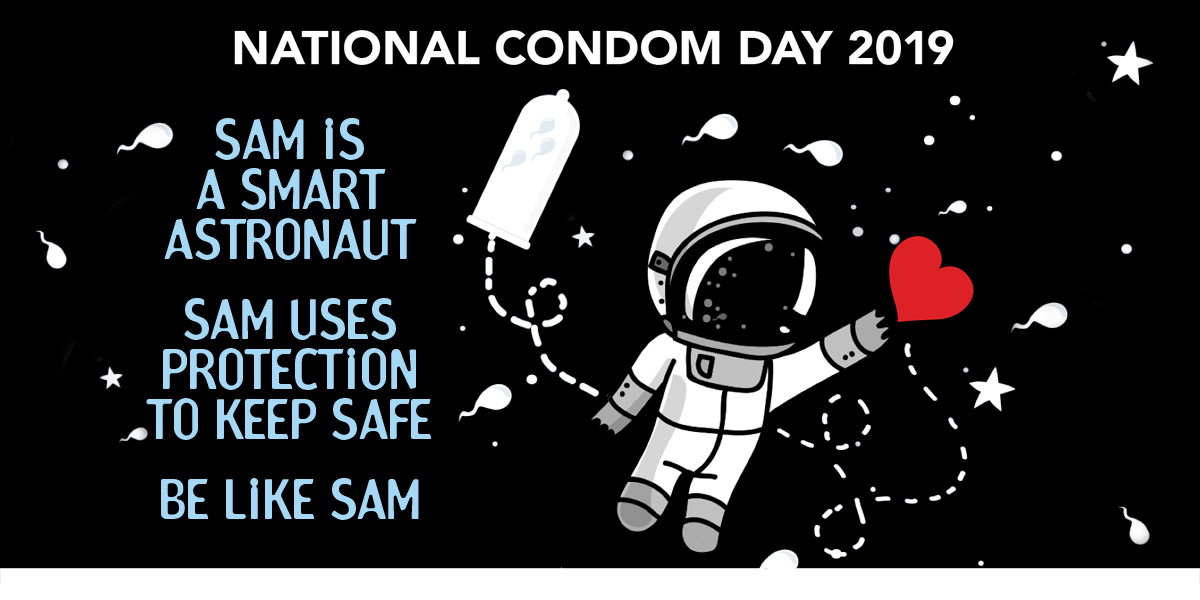
Sexual Health and Family Planning ACT will be out and about with free condoms this Valentine’s Day.
It’s Valentine’s Day, and the air is filled with the sounds of romantic words and music. You know what else it should be filled with? The sound of consent being asked for and given before condom wrappers are ripped open. Because it’s also National Condom Day!
Consent is the key to making sure that you and your partner both have a good experience. Sometimes two people can have very different ideas about what’s fun, or what should happen next. The only way to be sure that your partner is thinking the same thing you are, is to ask them.

Are you thinking what I’m thinking, B2? I think I am, B1!
So before things get too heated, check in with them. They might be very glad you asked!
Research from the Women’s Centre for Health Matters shows that there are still too many young women in Canberra who feel that they don’t have enough information about STIs and safe sex. Knowing how to stay safe is about more than just preventing pregnancy – it’s also about knowing how to have the conversations that ensure everyone agrees to what’s happening.
One 15 to 18-year-old participant in WCHM’s research said that “… it is important that everyone understands what to look out for, what is healthy, consent, safe sex, why people have sex, etc”.
“I think an objective teaching of sex and reproduction should be given to everyone, across genders, and covering heterosexual and homosexual differences,” she said.
Condoms are an accessible way for most people to prevent both STIs and unwanted pregnancy and are useful for lots of different sexual activities. Even if you’re using other contraception to prevent pregnancy, or what you’re doing won’t get anyone pregnant, preventing STIs means you can keep having fun without getting or spreading an infection. For people with a latex allergy, there are latex-free condoms, and lubricant helps keep everyone comfortable.
Some of the women who participated in WCHM’s research said they don’t feel comfortable talking to their partner about contraception.
“Most of the time I do, but sometimes I feel pressured not to use it or they try and take the condom off during sex” – woman aged 19 to 29 years participating in WCHM research
Just to be clear about this, if you consent to having sex with a condom, and then your partner tries to have sex without it, that’s not acceptable.
And as one of the participants said, “if it’s not on, it’s not on!”. If you want to stay safe and your partner pressures you not to, there’s a lack of respect being shown.
So how do you know when you have consent?
Before anyone can give consent, they must be legally old enough, sober and conscious, and mentally and physically able to make the decision and communicate it clearly. These things aren’t optional – they’re a legal requirement. But if you really do want to make sure you both have a good time, What To Say has some good advice about free agreement, and so do Sexual Health and Family Planning ACT.
It’s also important to check in with your partner during activity. If their body language doesn’t seem right – maybe they’re not responding the way you expected, they seem tense, or like they’re trying to slow things down – just ask if they’re still into it or if they need a change of pace. It’s also important to tell your partner if you need them to slow down or stop. Sometimes people change their mind, and that’s OK.
You can find free condoms at The Junction, AIDS Action Council, or Sexual Health and Family Planning ACT (SHFPACT), all located in the city. These are also great places to ask for advice about sexual health and consent, or you can talk to the Canberra Sexual Health Centre in Woden.


















